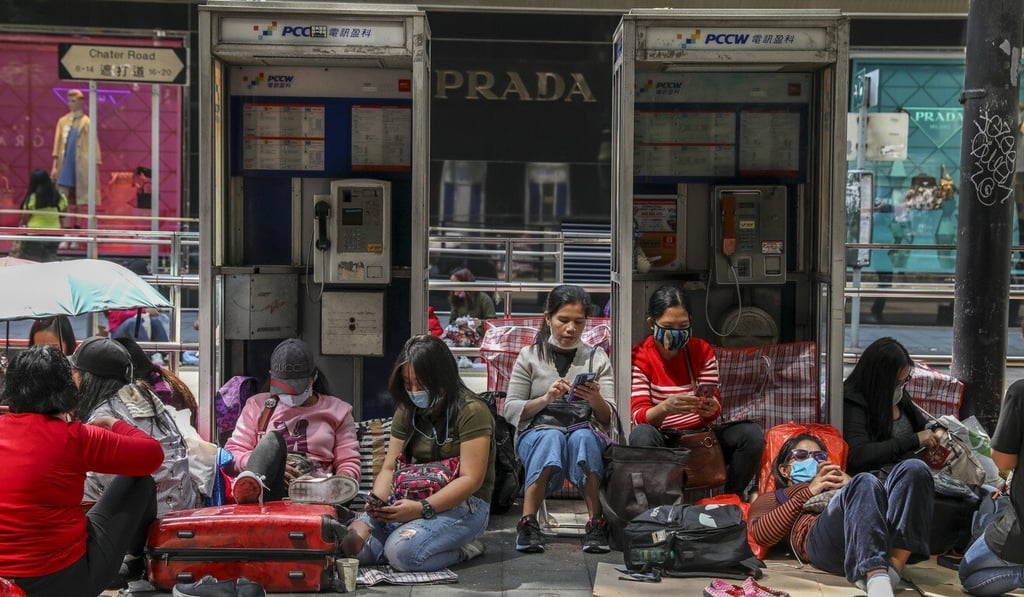Hong Kong’s ‘live-in’ rule for domestic workers leads to working on rest day, appeal of government policy argues
- Many domestic workers ‘too shy, too embarrassed, or too weak’ to confront employers about impositions on mandated day off
- Government lawyers maintain allowing helpers to live on their own could have negative repercussions, including pressure on the housing market

Hong Kong’s domestic helpers are routinely subject to exploitation on their legally mandated rest day because of a policy that requires them to live with their employers, an appeal against the government policy argued on Tuesday.
Barrister Paul Shieh Wing-tai SC told the Court of Appeal the so-called live-in rule, which has been in place since 2003, “unacceptably heightened the risk of domestic workers being forced to work while they were supposed to be having their rest day”.
Shieh was representing Filipino Nancy Almorin Lubiano, one of 380,000 domestic workers from abroad who work in the city. She lodged a judicial challenge against the policy in 2017, but lost her bid the following year at the Court of First Instance, leading to the present appeal.

The barrister said the city’s domestic workers were often made to perform chores before heading out to meet friends, or as soon as they returned from social gatherings on their day off.
Many were “too shy, too embarrassed, or too weak” to confront their employers about the imposition, he said.
Shieh argued the right to rest days is enshrined in the International Covenant on Economic, Social and Cultural Rights (ICESC), which is partially implemented in Hong Kong through its employment laws and the Basic Law, the city’s mini-constitution.